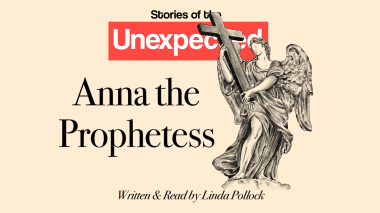I cannot behold him

Job 23: 1-9
1 Then Job answered:
2 ‘Today also my complaint is bitter;
his hand is heavy despite my groaning.
3 O that I knew where I might find him,
that I might come even to his dwelling!
4 I would lay my case before him,
and fill my mouth with arguments.
5 I would learn what he would answer me,
and understand what he would say to me.
6 Would he contend with me in the greatness of his power?
No; but he would give heed to me.
7 There an upright person could reason with him,
and I should be acquitted for ever by my judge.8 ‘If I go forward, he is not there;
or backward, I cannot perceive him;
9 on the left he hides, and I cannot behold him;
I turn to the right, but I cannot see him.
Job is rich beyond our imagining. Think Bill Gates, Mark Zuckerberg! He’s also an exceptional, moral human being. Who springs to mind? Gandhi? Mother Teresa? Dalai Lama? However, these two realities, his wealth and his piety, are not necessarily linked, indeed there is no mention of a relationship.
But Job’s wealth evaporates in the flash of an eye, soon followed by the death of his children. In time honoured fashion he mourns their loss, but remarkably his lament doesn’t degenerate into cursing (see Job 1: 13-22). Rather, though not an Israelite himself, he responds with resigned acceptance, “The Lord gave, and the Lord has taken away; blessed be the name of the Lord” (Job 1:21), a wise, but difficult perspective to sustain in the face of inexplicable suffering.
He is still left with profound questions about how to live when life itself falls apart. To Job, God is not just distant, but absent.
‘If I go forward, he is not there;
or backward, I cannot perceive him;
on the left he hides, and I cannot behold him;
I turn to the right, but I cannot see him.’ (verses 8-9).
It’s as if God is playing a cruel game with Job.
Rabbi Harold Kushner encountered similar anguished heart-searching when his young son Aaron was identified with progeria, or rapid ageing. Protesting his innocence he wrote, “How could this be happening to my family? If God existed, if He was minimally fair, let alone loving and forgiving, how could He do this to me?” (from When Bad Things Happen to Good People, 1981). His book is “for all…whose love for God and devotion to him led them to blame themselves for their suffering and persuade themselves that they deserved it.”
When life is throwing its worst at Job, he understands true wisdom to be “the fear of the Lord” (Job 28: 28). Perhaps it’s this perspective that enables Job to stand and face his awful suffering.
Mighty God,
Things happen to us
And around us
And we cannot begin to understand why.
Help us to grow in the wisdom
That is belief and trust in you.
AMEN.
A message from, our minister Albert Bogle:
"This week our scripture readings will invite us to think about the importance of wisdom when it comes to shaping the way we live. The psalmist in Psalm 90 writes this, 'Teach us so to number our days that we might apply our hearts to wisdom.' 'Wisdom' and 'Reason' point us towards the Word of truth displayed in the life of Jesus. Wisdom has its essence in eternity. So perhaps the words of the psalmist could be re-cast as 'Teach us so to number our days that we apply our hearts to eternity.' To think more about this why not join us in the live stream from the Scots Kirk in Lausanne this morning 16 September 9.30am UK time and 10.30am Central European time at sanctuaryfirst.org.uk/live"




 Add to Favourites
Add to Favourites








Login to comment.